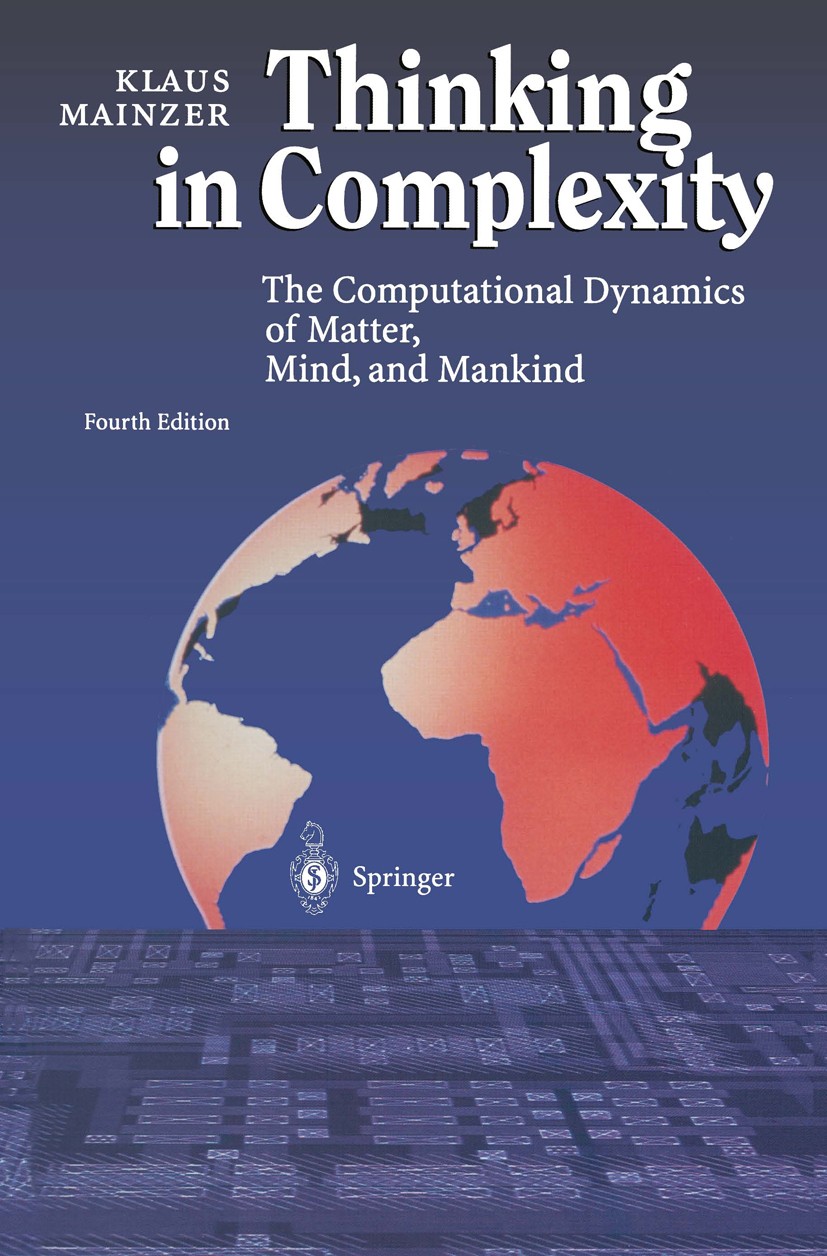| 书目名称 | Thinking in Complexity | | 副标题 | The Computational Dy | | 编辑 | Klaus Mainzer | | 视频video | http://file.papertrans.cn/925/924842/924842.mp4 | | 概述 | Includes supplementary material: | | 图书封面 |  | | 描述 | The first edition of this book, published in 1994, began with the statement that the new science of complexity would characterize the scientific develop ment of the 21st century. In the first decade of this century, this prediction has been confirmed by overwhelming new empirical results and theoretical insights the of physical and biological sciences, cognitive and computer sci ences, and social and economic sciences. Complexity and nonlinearity are still prominent features in the evolution of matter, mind, and human society. Thus, the science of complexity still aims at explanations for the emergence of order in nature and mind and in the economy and society by common principles. But a new engineering view has focused the exploration of complexity. On the one hand, we need new computational instruments to analyze com plex data and recognize future trends. On the other hand, the principles of complex dynamics are increasingly becoming the blueprints of gene, bio, and computer technology. Life and computer sciences are growing into a new kind of complex engineering, changing the basic conditions of human life and society. Nonlinear dynamics are implemented in nonlinear computer | | 出版日期 | Book 20044th edition | | 关键词 | Aristotle; Brain Modeling; Complex Systems; Decision Making; Natur; Nonlinear Dynamics; Plato; System Theor | | 版次 | 4 | | doi | https://doi.org/10.1007/978-3-662-05364-5 | | isbn_ebook | 978-3-662-05364-5 | | copyright | Springer-Verlag Berlin Heidelberg 2004 |
The information of publication is updating

|
|
 |Archiver|手机版|小黑屋|
派博传思国际
( 京公网安备110108008328)
GMT+8, 2025-12-30 20:48
|Archiver|手机版|小黑屋|
派博传思国际
( 京公网安备110108008328)
GMT+8, 2025-12-30 20:48


